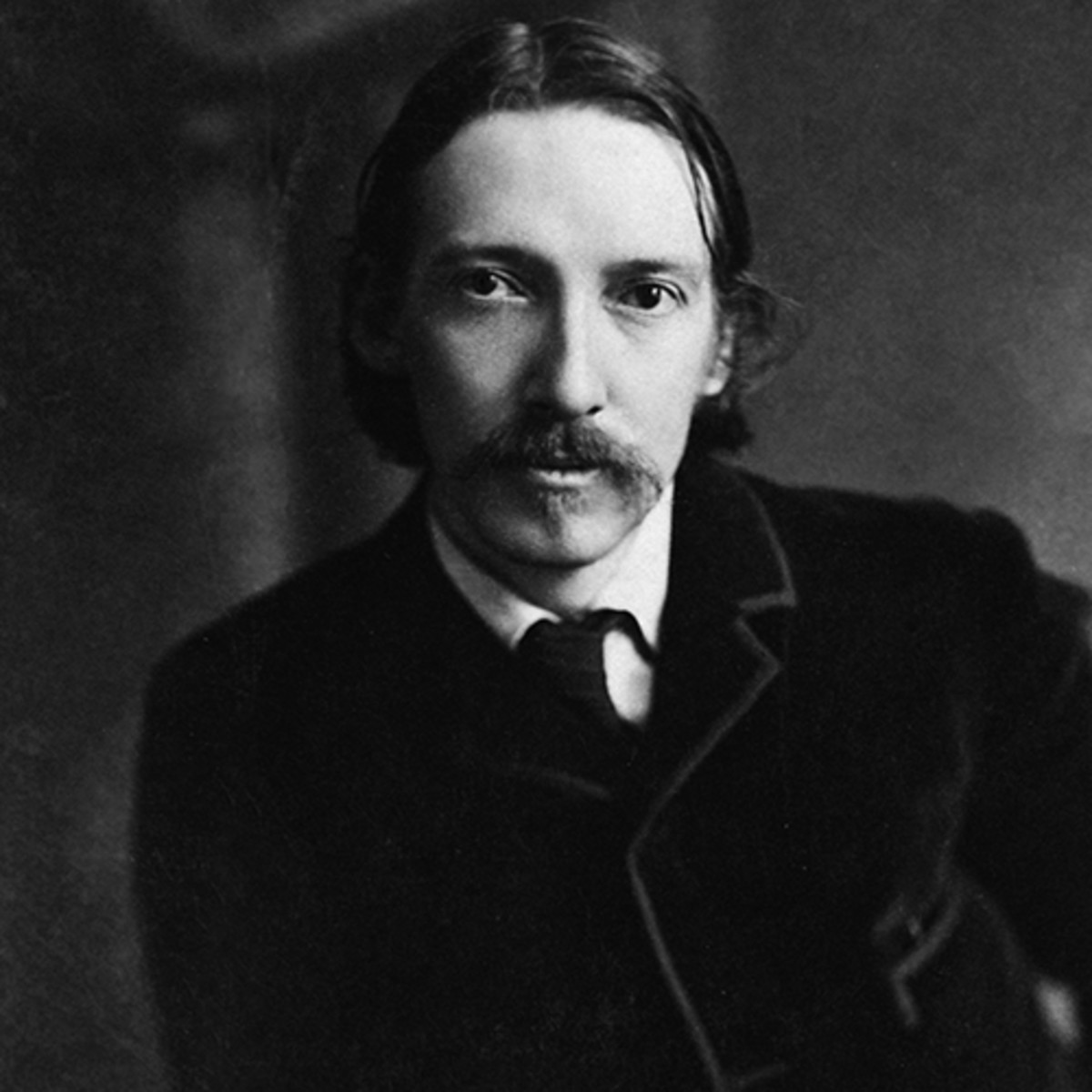Born on November 13, 1850, in Edinburgh, Scotland, Robert Louis Balfour Stevenson came from a long line of prominent lighthouse engineers. During his boyhood, he spent holidays with his maternal grandfather, a minister and professor of moral philosophy who shared his love of sermons and storytelling with him. Prone to illness, Stevenson spent many of his early winters in bed, entertained only by his imagination and a great love of reading, especially William Shakespeare, Sir Walter Scott, John Bunyan and The Arabian Nights. Encouraged to follow the family tradition of lighthouse engineering, he began studies at the University of Edinburgh in 1867, but quickly discovered he preferred a career in literature. To satisfy his father, he acquired a law degree and was admitted to the bar by the time he was twenty-five. Stevenson spent the next four years traveling through Europe, mostly around Paris, publishing essays and articles about his travels. In 1876, he met Fanny Vandegrift Osbourne, a married woman ten years his elder. When she decided to return to San Francisco soon after they met, Stevenson followed, taking the long voyage across the Atlantic and across the United States against the advice of his friends and physician. To add to his adventure and inform his writing, he chose to travel in steerage and was near death when he arrived in Monterey, California, in 1879. After being nursed back to health, he continued to San Francisco that winter, though it cost him his health. Osbourne, who had since been divorced, helped him recover. They married the following May. After several months in the U.S. with his wife and her young son, Stevenson brought his family back to Britain. Frequently sick, he continued to write seriously, producing the bulk of his best-loved work. His first successful novel, Treasure Island was published in 1884, followed by A Child's Garden of Verses in 1885, and The Strange Case of Dr. Jekyll and Mr. Hyde in 1886. On the evening of December 3, 1894, he collapsed, possibly due to a cerebral hemorrhage, and died. He is entombed at Mt. Vaea, at a spot overlooking the sea, with a tablet on which his poem "Requiem" is inscribed. Source

